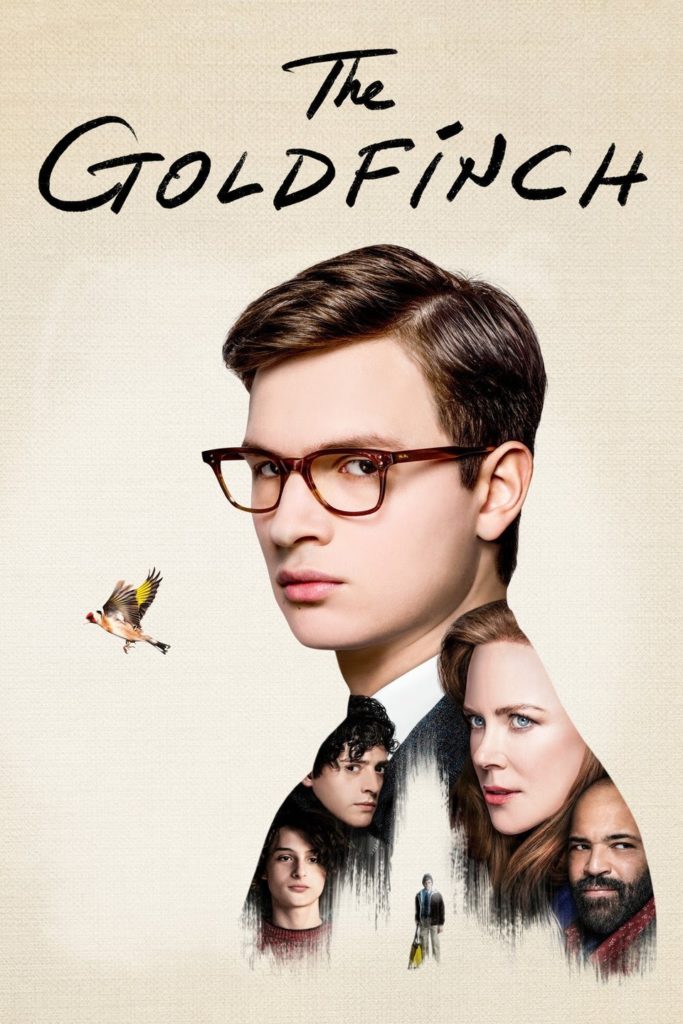“The Goldfinch”–Art and Loss

Goldfinch (2020), based upon Donna Tartt’s Pulitzer-Prize winning novel, tells the story of a young boy, Theo ( the astonishing Oakes Fegley), who is walking through galleries with his beloved mother at the Metropolitan Museum of Art. They gaze at a Dutch Master painting of a chained bird, the Goldfinch, when a terrorist bomb goes off. Theo’s mother dies and he escapes the rubble, clutching the 17th-century masterpiece and a dying man’s insistence that he take his ring. The little boy’s life will change dramatically over the course of the film.
With his mother dead and his father a deadbeat, Theo is thrown into two worlds: The first in an Upper East Side Barbour family led by a matriarch (Nicole Kidman), followed by the Las Vegas gambling underworld of his dad and Theo’s teenage friend Boris. Both worlds have an irrevocable impact on Theo’s life. Random and unforeseen events, even tragedies, shape Theo into someone he wouldn’t otherwise be.
As one would expect from a novel with several plots to propel the characters’ arcs into surprising dramatic turning points, Goldfinch, for the most part, manages to hold the viewer’s interest. Some scenes in the first half are a bit slow, but the second half of the film turns into a crime thriller.
The adult Theo (Ansel Elgort from “Baby Driver”), who is the narrator, does not rise to the heartbreaking performance of the young Oakes Fegley. And Nicole Kidman and Jeffrey Wright as Hobie, –Theo’s refuge and loving father figure– are as good as they always are, subtle and understated.
This is a movie with deeply flawed characters. Viewers who can appreciate the destructive elements of lies, secrets, and betrayal will understand that this is a story about the loss and grief of a young child, and the young adult’s journey towards healing, with the promise of love and forgiveness. This film kept me watching until the end.
Note: I believe the critics judged this movie a little too harshly. I did not read the book so I was not influenced by a comparison with Tartt’s novel. However, the two media are radically different and I have never felt that the psychological interior lives portrayed in a novel can be presented visually on the screen in the same way that the abstraction of the narrative is created in the mind of the reader.

lenorehgay
Hey,
only skimmed your review because I read the book twice and loved it, loved it. Only one spot in the book that needed a bit of work. I’ll try to find the film. Not sure I even knew it was out. Still only have cable. When book is out and I finish with publicist I’ll put energy into figuring out what I want.